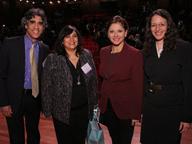Faculty News
—
Prof. Aswath Damodaran on the pricing of Apple Inc's stock
—

Excerpt from The New York Times -- “'Right now, Apple is being priced as though it has no future growth,' he said."
Faculty News
—

Excerpt from The New York Times -- “'Right now, Apple is being priced as though it has no future growth,' he said."





















